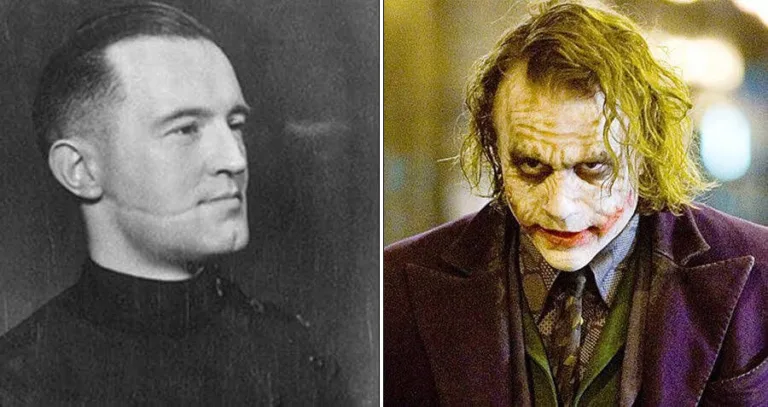Ted Bundy’s name is synonymous with horror and terror, conjuring images of a cunning serial killer who manipulated and murdered countless young women in the 1970s. But behind this chilling facade lies a complex story, one that begins long before his reign of violence. To truly understand the monster he became, we must delve into the troubled world of Ted Bundy’s childhood and early life.
Ted Bundy’s upbringing was far from idyllic. Born in 1946, he entered a world marked by secrecy and instability. Raised by his grandparents after being told his mother was his sister, young Ted experienced emotional neglect and Confusion About His Identity. This lack of genuine parental love and the constant feeling of displacement laid the groundwork for deep-seated psychological issues that would later manifest in his horrific actions.
The absence of a stable family structure and the presence of physical Abuse Further Compounded These Problems. Bundy’s childhood was characterized by anger, resentment, and a desperate longing for connection. He craved attention and affection but found himself surrounded by emotional distance and hostility. This toxic environment fostered a sense of alienation and fueled his growing darkness.
Early Life & Family Trauma
The instability of Bundy’s early life extended beyond the emotional Void Within His Home. He moved frequently between different relatives and even spent time in foster care, never truly finding a sense of belonging or stability. This constant upheaval added another layer of trauma to his already fragile psyche, leaving him feeling lost and untethered.
Adding to the chaos was the revelation that his mother was not Actually His Sister. This bombshell discovery, Made During His Teenage Years, shattered any remaining illusions he may Have Held About His Family Life. It further complicated his sense of identity and fueled his resentment towards those who had kept the truth from him for so long.
The impact of these early traumas on young Ted was profound. He struggled to form healthy relationships, often resorting to manipulation and control. He craved validation and affection but pushed people away with his volatile behavior. This pattern of seeking connection while simultaneously sabotaging it would tragically continue Throughout His Life.
The Impact of Parental Absence
The profound absence of genuine parental love and guidance during Ted Bundy’s formative years had a devastating impact on his development. Children need secure attachments with their caregivers to build healthy emotional foundations and learn how to navigate the world safely and confidently. Without this crucial support system, young Ted was left vulnerable to insecurity, anger, and a deep-seated sense of loneliness.
This void in his childhood created a yearning for connection that he would later attempt to fulfill in Destructive Ways. Bundy craved attention and affection, but his inability to form healthy relationships stemmed from the lack of love and emotional validation he received During His Early Years. He often sought out admiration and power over others as a means of compensating for this inner emptiness.
The consequences of this parental absence were far-reaching. Bundy’s distorted view of relationships, coupled with his underlying anger and resentment, laid the groundwork for his later violence. His need for control and his inability to empathize with others would ultimately lead him down a path of unimaginable darkness.
 Crazy Horse & Sitting Bull: Legendary Lakota Leaders
Crazy Horse & Sitting Bull: Legendary Lakota LeadersEmotional Neglect & Identity Confusion
Growing up surrounded by secrecy and told a fabricated story about his family only deepened the sense of confusion that plagued young Ted Bundy. The constant deception surrounding his origins created an unstable foundation for his identity. He struggled to understand who he was or where he belonged, leading to feelings of isolation and alienation that would haunt him throughout His Life.
This Emotional Neglect manifested in a variety of ways. Bundy often craved attention but pushed people away with his unpredictable behavior. He sought validation from others but Remained Deeply Insecure About Himself. This internal conflict fueled his need for control and manipulation, as he desperately tried to fill the void left by genuine affection and acceptance.
The lack of emotional support during his formative years left lasting scars on Bundy’s psyche. He never fully resolved the identity crisis that plagued him, leading to a distorted sense of self and an inability to form healthy, Fulfilling Relationships. This profound emotional emptiness would ultimately become a driving force behind his Descent Into Darkness.
A History of Abuse and Anger
Adding to the already turbulent landscape of Ted Bundy’s early life was a history of Physical Abuse. While specific details remain unclear, accounts suggest that young Ted endured beatings and harsh discipline from both his grandparents and other relatives. These traumatic experiences left deep emotional scars and fueled a simmering rage Within Him.
This history of abuse played a significant role in shaping Bundy’S Worldview. He learned to associate power with control and saw violence as a means of asserting dominance over others. The anger he suppressed during his childhood would later erupt in terrifying ways, manifesting in his brutal acts of Violence Against Unsuspecting Women.
His inability to cope with these overwhelming emotions led to a dangerous cycle of self-destruction. Bundy sought solace in fantasy and escapism, immersing himself in violent literature and developing a morbid fascination with death. This unhealthy obsession further distorted his perception of reality and paved the way for his descent into darkness.
Seeds of Violence
The combination of emotional neglect, Identity Confusion, and a history of abuse laid the groundwork for Bundy’s Descent Into Violence. While he wasn’t overtly aggressive as a child, subtle warning signs emerged that foreshadowed His Future Darkness. He exhibited a fascination with death and violence, often engaging in disturbing fantasies and daydreams.
Bundy also displayed a manipulative streak, using charm and charisma to get What He Wanted. This early talent for deception would later prove crucial in luring his Victims Into His Trap. He craved power and control, seeking to dominate those around him.
These seeds of violence were nurtured by the absence of healthy emotional outlets and guidance. Bundy’s rage and frustration found expression in increasingly disturbing ways, culminating in his horrific crimes. His early life experiences created a breeding ground for a monster who would terrorize an entire nation.










